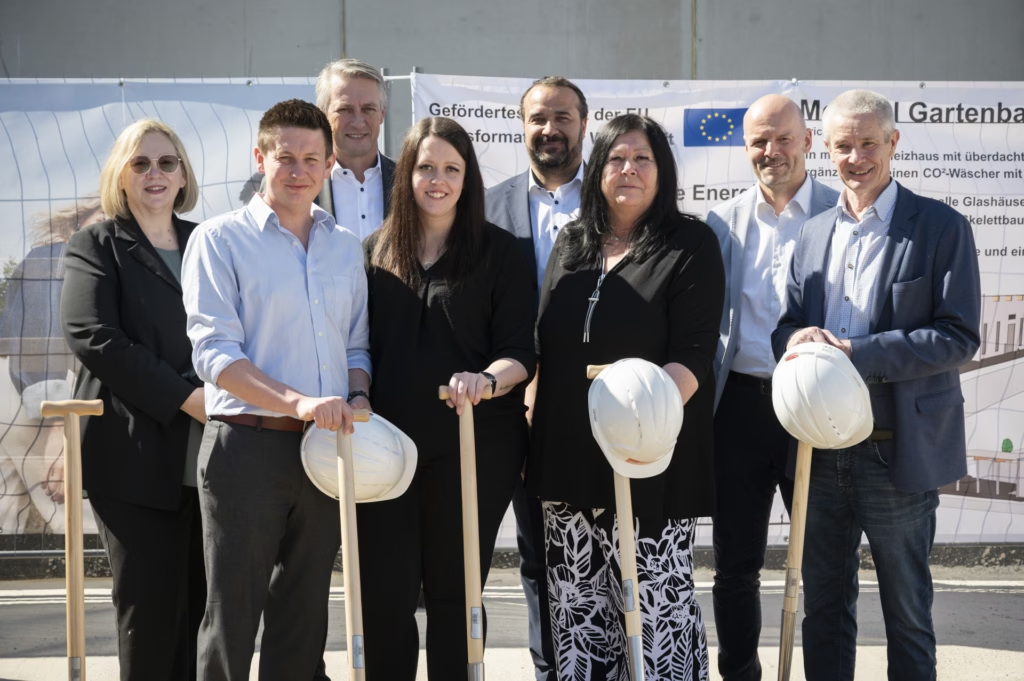Austria aims to be climate-neutral by 2040. One project that can help achieve this goal is that of the Merschl horticultural company.

With financing from Gärtnerbank, a brand of Volksbank Wien AG, the nursery is implementing a sustainable and, above all, forward-looking project. The business, which produces around 3,000 tons of tomatoes annually, will rely on solid biomass instead of gas for heat generation. The planned biomass plant (capacity five megawatts), which will run on wood chips, is connected to a highly innovative carbon capture system for CO2 separation. While conventional CCS (Carbon Capture Store) systems store the CO2, it is reused at the nursery. The groundbreaking ceremony took place at the beginning of April.
Greenhouse gas emissions reduced by 96.7%
CO2 is pumped into the greenhouses via dedicated pipes and absorbed by the plants, promoting their growth. This transforms negative CO2 into positive CO2 – a milestone for the post-carbon economy. This is the unique selling point of the Merschl CCU (Carbon Capture and Utilization) plant. The investment in this plant is supported as part of the "Transformation of the Economy" program and financed by Gärtnerbank, a brand of Volksbank Wien AG, with a loan. The new plant will reduce annual greenhouse gas emissions by 96.7 percent. "Merschl Nursery is the first company in Austria to build such an innovative carbon capture plant on an industrial scale. The project is a good example of how we, as a regional bank, finance our customers' individual investment projects. We are proud to be a partner in this pioneering project," says Gerald Fleischmann, CEO of Volksbank Wien AG and spokesperson for the Volksbanken Association.
Offensive among corporate customers should provide a boost
Coinciding with the groundbreaking ceremony for the flagship facility, the Volksbanken Association is launching an image campaign for corporate customers. As the latest entrepreneur study conducted by the Gallup Institute on behalf of the Volksbanken Association shows, Austria's entrepreneurs are currently cautious about investing in light of the uncertain economic situation. Countercyclical investments by companies could, however, contribute significantly to ending the current downturn and transforming it into a boost for the economy and Austria as a whole. With this initiative, the Volksbanken Association aims to facilitate this upswing for companies and, as a regional bank, offer them a partnership with high potential.
Austria's approximately 360,000 small and medium-sized enterprises (SMEs) form the backbone of the domestic economy and contribute significantly to prosperity. Austrian SMEs operate in a wide variety of sectors and have unique requirements. To ensure that the values and visions of Austrian companies can continue to exist and grow, the Volksbanken provide support for all financing projects: from investments in the company, through corporate investments and pension planning, to the transfer of family businesses to the next generation. As a purely Austrian financial institution, the Volksbanken Association finances investments in the regions and thus promotes the local economy. "With our financing, we support regional economic cycles and invest our customers' funds locally. This is what we understand by sustainability-oriented action, and this approach is one of the cooperative principles by which the Volksbanken operate," says Gerald Fleischmann.
